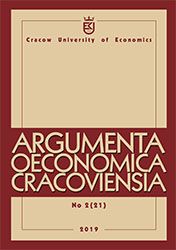Challenges of European Integration – to What Extent Should the Common Agricultural Policy Stay Common?
Challenges of European Integration – to What Extent Should the Common Agricultural Policy Stay Common?
Author(s): Barbara WieliczkoSubject(s): Economy, Supranational / Global Economy, Agriculture
Published by: Wydawnictwo Uniwersytetu Ekonomicznego w Krakowie
Keywords: common agricultural policy; EU agriculture; fiscal federalism; environmental federalism; subsidiarity principle
Summary/Abstract: The common agricultural policy (CAP) is considered to be the oldest EU policy and one that covers such a vast range of issues that it leaves almost no room for Member States’ policy in this field. Yet the recent consecutive reforms which base their rationale on the common truth that “one-size-does-not-fit all” give more and more room for Member States to make their own choices. Thus, both a theoretical and an empirical question can be posed: what is the optimal solution for the EU and its citizens (acting both as consumers and taxpayers) when it comes to shaping agricultural policy? Should it be an EU policy or should it be left to Member States or even to their regions? This paper presents an answer to the question posed in the title. The answer is based on the theory of fiscal federalism and environmental federalism as well as practical issues relating to the functioning of EU agriculture based on a literature review. The results show that there is room for activity by both the EU and the Member States when it comes to agricultural policy. The optimal division of tasks between the EU and Member States, based on the subsidiarity principle, shows that EU policy should focus on safeguarding the competitiveness of EU agriculture and fair competition on the EU common market, while Member States should concentrate on fine-tuning EU policy instruments to the specific needs of their agriculture.
Journal: Argumenta Oeconomica Cracoviensia
- Issue Year: 2/2019
- Issue No: 21
- Page Range: 97-109
- Page Count: 13
- Language: English

